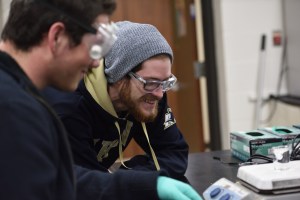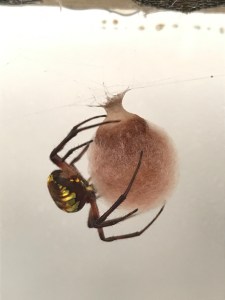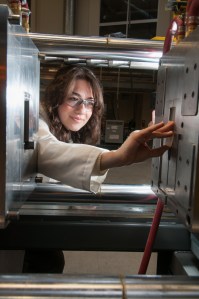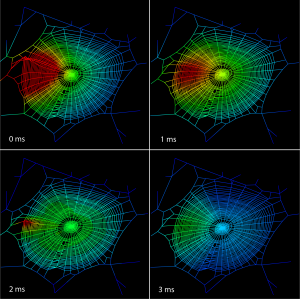
Biology, Chemistry and Geoscience
Given time constraints and large class sizes, the introductory courses of any discipline are a challenging way to experience hands-on research. In these time-limited, structured labs students don’t get a real impression of the research environment, but based on these experiences decide that biology is “not for them.” But studies suggest that students who have an early experience with research tend to continue to pursue a scientific career. This is particularly true for student underrepresented in science (read article on this topic). Research opportunities allow students to become part of the research process and feel more connected to their disciplines after their experiences. Thus, hands-on research has proven to be an important tool to motivate biology students (or students interested in STEM fields) to continue their degrees when they might otherwise not have.
Student research is also an important factor in being accepted into medical or other professional schools. Such schools highly value research experiences for undergraduates in their selection of the best candidates for their programs. Additionally, the faculty mentoring students conducting research will write the best letters of recommendation for these students when they do apply to professional or graduate schools.
The tiered mentoring program is designed for students to be both mentees and eventually mentors. Each student is encouraged to participate for a minimum of two years in the same lab. In the first year, the student is the “mentee” and learns the various aspects of the research and how to fit into the research group. In the second year, the student becomes the mentor for new students joining the following year. Having the experience of mentoring newer students really shows the “mentor” students how much they have learned and gives them the confidence that they can succeed in biology.
 Incoming tiered mentoring students will be paired with a graduate student, a faculty mentor and, if applicable, a tiered mentoring student from the previous year. The faculty member and graduate student will direct the overall research project, and initially will provide a good deal of instruction to the tiered mentoring student. As time progresses, the tiered mentoring student will become more and more independent as they evolve into their own role within the research group. The overall development of the tiered mentoring student should follow four general levels (adapted from Miller, 2002):
Incoming tiered mentoring students will be paired with a graduate student, a faculty mentor and, if applicable, a tiered mentoring student from the previous year. The faculty member and graduate student will direct the overall research project, and initially will provide a good deal of instruction to the tiered mentoring student. As time progresses, the tiered mentoring student will become more and more independent as they evolve into their own role within the research group. The overall development of the tiered mentoring student should follow four general levels (adapted from Miller, 2002):
- Undergraduates with limited experience will depend on the faculty/graduate student for direction;
- With experience the undergraduates will move toward independence with the faculty/graduate student mentors as their guide;
- Faculty, graduate student and undergraduates will become collaborators, all making contributions to the research endeavor;
- The faculty, graduate student and undergraduate will learn from each other as colleagues.

Click HERE to participate.
